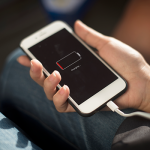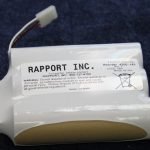Batteries are highly valuable for the way they provide power in places where cords and plugs are impractical. And because they’re so inexpensive and convenient, we buy lots of batteries and keep them on hand for clocks, flashlights, radios, remote controls, cameras, and more. But when they’re out of energy and it’s time to remove them, you may be wondering the best way to dispose of them. Because of their lead acid, nickel, lithium, cadmium, mercury or nickel metal hydride contents, simply tossing them in the trash is hazardous.Alkaline batteries are the ONLY battery chemistry that may be discarded in household garbage.
What Can Go Wrong?
It’s tempting to throw away batteries when they’re no longer charged. However, if the battery comes under conditions where the battery case can be damaged, the lead acid or other toxic chemical can leak. If you’ve ever had to change batteries that have not only depleted but also started to leak while in one of your devices at home, you surely recognize the tell-tale white powdery crystals those batteries leave behind, along with the visible damage to the battery housing. Battery acid can cause chemical burns and contaminate soil and water.
Disposing of batteries in a fire is even more dangerous. The high heat of the flames can cause the case to split and allow battery acid or other chemicals to escape, exposing you to dangerous gases.
Proper Battery Disposal
In most municipalities, it’s legally prohibited to throw non-alkaline batteries in the trash. Instead, local governments offer electronics recycling days or other formal opportunities for used battery collection for single-use and rechargeable batteries. Some businesses also offer battery recycling services. These specialized collection efforts are best prepared to deal with the possibility of exposure to corrosive battery acid. This kind of battery disposal requires special handling to ensure hazardous conditions are minimized to preserve the health and well-being of people and the environment.
When it’s time to dispose of your spent batteries, turn to the formal battery disposal and battery recycling services near you. Protect yourself and your family, as well as your community, from potential harm caused by leaking battery acid or other toxic chemicals. Call your local public works department to find out when your local battery disposal collection days are. Until then, collect your used batteries and keep them out of reach of children for their safety.




